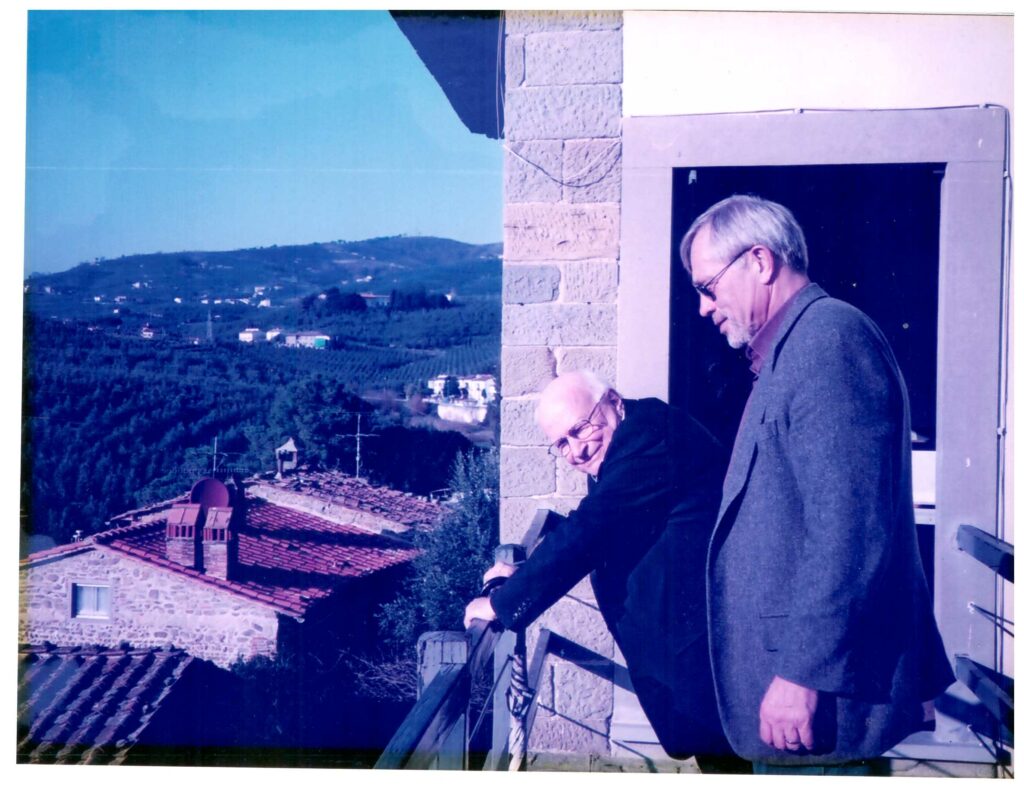A joint project of the European University Institute, Department of History and Civilisation/Robert Schuman Centre, Florence and the Nordeuropa-Institut at Humboldt-Universität zu Berlin 1997-2000, 2000-2003 the EUI
Directors 1996-1999: Bernd Henningsen and Bo Stråth, 2000-2003 Bo Stråth
Sponsor 1996-2000 Riksbankens Jubileumsfond, RJ, Stockholm and 2000-2003 EUI Research Council
“The Cultural Construction of Community in the Process of Modernisation in Comparison” began as a collaborative research project of the European University Institute in Florence and Nordeuropa-Institut at the Humboldt-Universität zu Berlin. The project, with Stråth and Nina Witoszek from Oslo and two assistants constituting the Scandinavian part, was launched in January 1996 and funded for four years by the Bank of Sweden’s Tercentenary Foundation. The volume The Cultural Construction of Norden, edited by Stråth and Øystein Sørensen, was a prestudy. The team moved to Florence from Sweden when Stråth began his chair there in January 1997. The original focus was on Germany and Scandinavia in comparison. The project concluded in the Spring of 2000 in financial and organisational terms. The main product was the volume The Postmodern Challenge, edited by Stråth and Witoszek. However, it continued at the EUI, broadening the perspective to Europe and Europe in the world and more theoretical questions in a constructivist and culturalist approach sponsored. by the Research Council of the EUI, resulting in several books edited or coedited by Bo Stråth. The project was closely connected to the seminar series EUI Research Seminars.
The original point of departure of the project was the observation that from a historical perspective, modernisation processes in Sweden and Germany exhibit striking similarities, although developments in the 1930s advanced in opposite directions. The object of the interdisciplinary project at the outset was to foster a deeper understanding of why two similar modernisation processes have resulted in such different problem resolutions. The question of governability, social cohesion and division, studied through an analytical focus on language and culture, was at the centre of the project.
In the first phase, an epistemological point of departure was Ernst Cassirer’s semiotically grounded understanding of “reality”, which he saw as an ensemble of symbol forms and where reality is constructed with symbols. During the Florence phase of the project, inspiration came in particular from Reinhart Koselleck, with his focus on the role of key concepts in historical change, Begriffsgeschichte. Also, his theoretical reasoning around historical time influenced the project. At the beginning of the 2000s, Reinhart Koselleck was a guest on the project for three consecutive years for a week. The seminars, visits to war memorials (Koselleck’s particular interest) and other historical sites, and dinners with him, with a glass of wine or two, were intellectual highlights.

Homeland was one of the book projects under the umbrella of the cultural construction of communities. Ron Robin in Haifa and Stråth initiated it. The core was a group of Israel and Palestinian historians and the backdrop of the Israel-Palestine conflict. However, the team wanted to see that conflict in a broader global framework of other areas searching to overcome hostility looking for peaceful cohabitation, Such as South Africa and Northern Ireland. The first workshop was organised in October 1999, History and Community. Rethinking the Nation-State. and the second in April 2000, Homeland. At these workshops, the contours of the volume Homelands took shape. It was a search for political communities defined in post-ethnic and post-religious terms.
There was a dark contrast to the hopefulness and confidence in an alternative future that permeated the meetings. It was the shadow of the assassination of Yitzhak Rabin in November 1995 which brought the peace process that began in Oslo in 1993 into troubled waters. Israel will face a long period of darkness with implications for Palestine relations, Georg Iggers prophesized at a conference in Sweden half a year after the murder. Stråth had, as we saw, met Iggers at Jürgen Kocka’s Bürgertum project in Bielefeld in 1988. Two months after the second Homeland workshop, the summit between Bill Clinton, Ehud Barak, and Yasser Arafat in Camp Davis failed to come to an agreement. However, at the time of the book launch of Homelands in 2003, the editors were still as hopeful as the contributors to the book. The dark signs were not as strong as they became later when looking backwards to derive the origin of the present situation.
The issues of myth, memory, and history are closely related to the problem of how the community is culturally constructed. Taken together, they raise the question of how the past is mobilised in different but specific forms to come to terms with the present and to deduce and legitimise historical origins. To address the tangle of these issues, Stråth organised a conference in June 1998 in Bivigliano, some 15 kilometres north of Florence. Hayden White was the key speaker. The books Myth and Memory in the Construction of Community and Europe and the Other and Europe as the Other were a spin-off from that conference.
The Cultural Construction of Community project brought together research and teaching with several seminars and workshops organized by PhD researchers on methodological and theoretical problems generated by the research in the project. The discussions at these seminars and conferences, in turn, fed back to the research work. Several years after the project had finished, it continued to work as a source of inspiration for new researcher-initiated and -organized seminars and workshops. During 1998-2007, several seminar series brought together PhD researchers who represented various research topics and approaches but with a shared interest in methodological and theoretical reflection: Cultural Constructions of Community and EUI Research Seminars. Often, external guests gave papers for discussion.
The edited volume The Cultural Construction of Norden resulted from work to prepare the project application. The second part of the project resulted in several edited volumes:
The Postmodern Challenge: Perspectives East and West
Myth and Memory in the Construction of Community
Europe and the Other and Europe as the Other





































